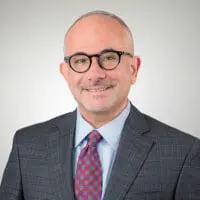Publication
U.S. Supreme Court Expands Scope of SEC’s Anti-Fraud Rule in “Copy-Paste” Case
by Joseph G. Adams and Taryn J. Gallup
On March 27, 2019, the U.S. Supreme Court issued its decision in Lorenzo v. Securities and Exchange Commission, Case No. 17-1077 (U.S. Mar. 27, 2019) that broadened the group of persons who could face primary liability for violating the federal securities laws. In Lorenzo, the Court held that a person can be primarily liable for securities fraud by knowingly soliciting investors with a false statement, even if the statement is made by another person.
The rule at issue in Lorenzo is Rule 10b-5, which is the SEC’s main anti-fraud rule. Among other things, Rule 10b-5 makes it unlawful for any person to “make any untrue statement of a material fact” in connection with the purchase or sale of securities.
Lorenzo was an investment banker at a brokerage firm registered with the SEC. His firm was hired to sell the securities of a company called Waste2Energy, a company developing technology to convert “solid waste” into “clean renewable energy.” Although Waste2Energy had at one time listed its total assets at approximately $14 million, it was forced to disclose in a public filing in early October 2009 that its total assets were actually less than $400,000. Shortly after this disclosure, Lorenzo contacted investors in an attempt to sell them securities issued by Waste2Energy. At the direction of his boss, who also supplied the content and approved the message, Lorenzo sent email messages to two potential investors stating that Waste2Energy had “confirmed assets” of $10 million.
Based on these false statements, the SEC instituted proceedings against Lorenzo on the ground that he violated Rule 10b-5 (and other laws) by making false and misleading statements with the intent to defraud. As a sanction, the SEC imposed a $15,000 fine, ordered him to cease and desist from violating the securities laws, and banned him from working in the securities industry for life.
Lorenzo appealed the SEC’s decision arguing that he could not be held liable under Rule 10b-5(b) in light of the Court’s prior decision in Janus Capital Group, Inc. v. First Derivative Traders, 564 U.S. 135 (2011). In Janus, the Court held that the “maker” of a statement is someone who has “ultimate authority” over the statement, and as a result, an investment adviser who had merely participated in drafting a false statement was not a “maker” of a false statement under Rule 10b-5(b). Pointing to Janus, Lorenzo argued that he was not a maker of the false statement because the content of the emails he had sent to investors was supplied by his boss, who also directed him to send the messages. The Court of Appeals for the D.C. Circuit agreed that Lorenzo was not the maker of the false statement, but nonetheless imposed liability under Rules 10b-5(a) and (c), and other provisions of the securities laws.
In a 6-2 opinion by Justice Breyer (with Justice Kavanaugh taking no part in the consideration or decision), the Court affirmed the Court of Appeals’ decision and held that a person who intentionally disseminates false statements, regardless of whether that person “made” the false statement under Rule 10b-5(b), can nevertheless face liability under Rules 10b-5(a) and (c), as well as related securities statutes. The Court explained that the language in Rule 10b-5 is broad enough to encompass Lorenzo’s conduct. Specifically, by sending an email that he knew contained material misstatements, Lorenzo could fairly be said to have employed a “device,” “scheme,” and “artifice to defraud” under subsection (a). Likewise, by sending the emails, Lorenzo engaged in an “act, practice, or course of business” that functioned as a “fraud or deceit” under subsection (c).
In dissent, Justice Thomas, joined by Justice Gorsuch, argued that the majority’s decision “eviscerates” the distinction between primary and secondary liability for a false statement because it holds that a person “who has not ‘made’ a fraudulent misstatement can nevertheless be primarily liable for it.” The dissent would have imposed secondary liability only.
The Lorenzo opinion makes clear that a person cannot escape primary liability for securities fraud under Rule 10b-5 by claiming that the false statements at issue were “made” by another person. This opinion clarifies that disseminating false statements made by other people with the intent to defraud, even in informal email communications, is sufficient to establish primary liability for securities fraud.
About Snell & Wilmer
Founded in 1938, Snell & Wilmer is a full-service business law firm with more than 500 attorneys practicing in 17 locations throughout the United States and in Mexico, including Los Angeles, Orange County, Palo Alto and San Diego, California; Phoenix and Tucson, Arizona; Denver, Colorado; Washington, D.C.; Boise, Idaho; Las Vegas and Reno, Nevada; Albuquerque, New Mexico; Portland, Oregon; Dallas, Texas; Salt Lake City, Utah; Seattle, Washington; and Los Cabos, Mexico. The firm represents clients ranging from large, publicly traded corporations to small businesses, individuals and entrepreneurs. For more information, visit swlaw.com.


